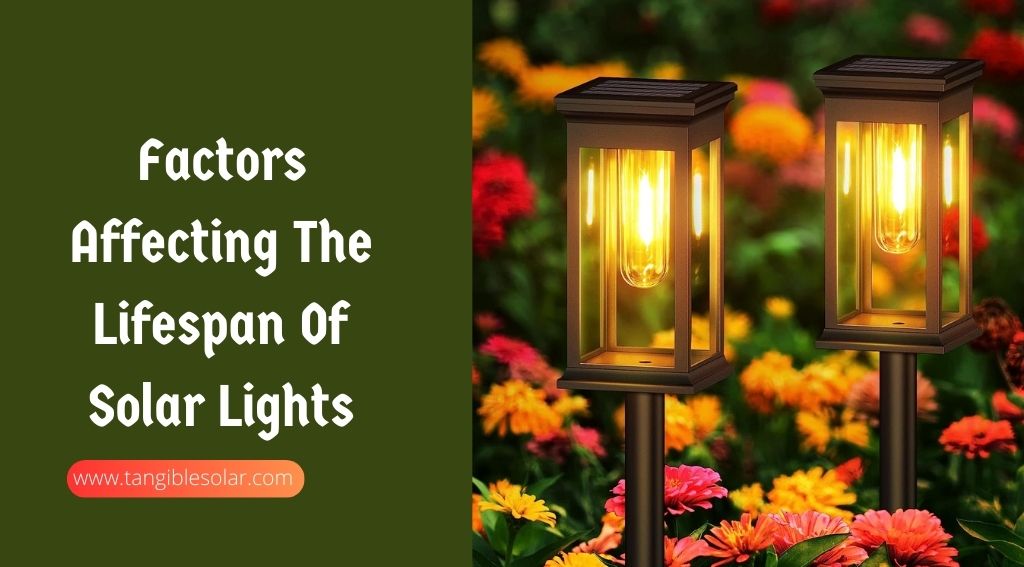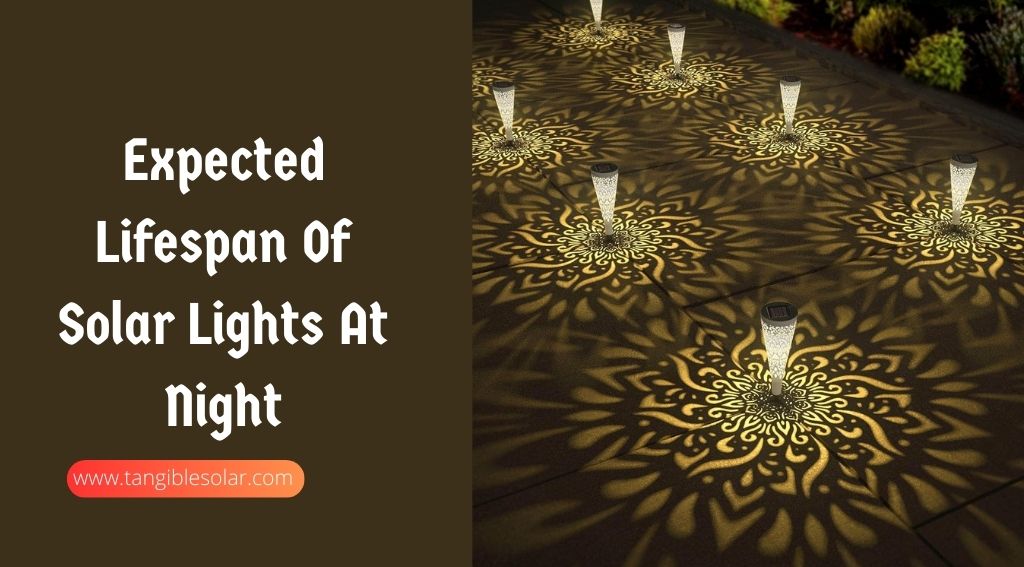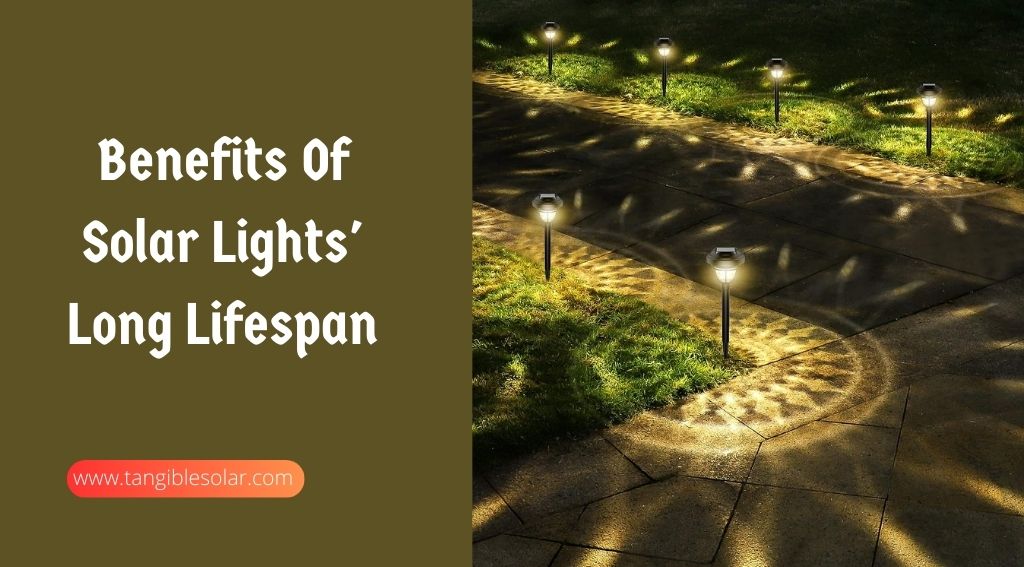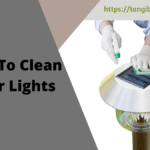How Long Do Solar Lights Last at Night?
Solar lights typically last for about 8–10 hours at night before they need to be recharged. Integrating solar lighting solutions into your outdoor spaces is an environmentally friendly and cost-effective way to illuminate your surroundings.
With the increasing popularity of solar lights, many people are curious about how long these lights last at night. We will explore the lifespan of solar lights during nighttime use as well as factors that can affect their performance.
By understanding the longevity of solar lights, you can make informed decisions about installation and maintenance, ensuring a well-lit outdoor space even in the darkest hours. So, let’s dive into the details and shed light on the duration of solar lights at night.
The Basics Of Solar Lights
Understanding How Solar Lights Work
Solar lights are an innovative and environmentally friendly lighting solution that harnesses the power of the sun to illuminate your outdoor spaces. Understanding how solar lights work is crucial to making the most of this technology. These lights rely on photovoltaic cells, which convert sunlight into electricity. The electricity generated is stored in rechargeable batteries, which power the light fixture when the sun goes down. This clean and renewable energy source allows solar lights to function completely independently of the electric grid.
Components Of A Solar Light System
To grasp the inner workings of a solar light, it’s important to be familiar with its key components. Solar lights consist of several essential parts:
- Photovoltaic cells: These cells are responsible for capturing sunlight and converting it into electrical energy.
- Rechargeable batteries: These batteries store the energy that photovoltaic cells produce during the day in order to provide power at night.
- Light fixture: This is the visible part of the solar light system that emits light. It can be an LED bulb or other types of lighting technology.
- Sensor and control system: These components detect ambient light levels and automatically turn the solar light on and off. Some models also come with motion sensors to activate the light when movement is detected.
Advantages Of Using Solar Lights
Solar lights bring numerous benefits to users and the environment. Here are some advantages of incorporating solar lights into your outdoor lighting setup:
- Cost savings: Solar lights rely on the sun’s energy, which is free and abundantly available. By utilizing solar power, you can significantly reduce your electricity expenses in the long run.
- Energy efficiency: Solar lights are highly efficient, converting sunlight into electricity with minimal energy loss. This eco-friendly approach helps conserve resources while providing reliable lighting.
- Easy installation: Solar lights are generally straightforward to install, as they don’t require complex wiring or connections to the electrical grid. This makes them ideal for DIY enthusiasts and those looking for a hassle-free lighting solution.
- Autonomy: Solar lights operate independently, relying on stored energy in the batteries. This means they continue to illuminate your outdoor spaces even during power outages.
- Low maintenance: Once installed, solar lights typically require minimal maintenance. Cleaning the solar panels periodically and replacing the batteries every few years are usually the only tasks needed to keep them running efficiently.
So, whether you are looking to enhance the ambiance of your backyard, increase security around your property, or simply add a touch of charm to your outdoor spaces, solar lights are a reliable, eco-friendly, and cost-effective option to consider.
Factors Affecting The Lifespan Of Solar Lights

When it comes to choosing solar lights for your outdoor spaces, one of the most crucial considerations is how long they will last at night. Several factors influence the lifespan of solar lights, including the quality of their components, the efficiency of their solar panels, the capacity and quality of their batteries, and various environmental factors. Let’s delve deeper into each of these factors to understand their impact on the longevity of solar lights.
How to Wire a Solar Panel to an LED Light
The overall quality of the components used in solar lights plays a significant role in determining how long they will last at night. Cheaply made solar lights with inferior materials are more prone to damage and wear over time, leading to shorter lifespans. On the other hand, high-quality solar lights constructed with durable materials are built to withstand the elements and ensure longevity.
Solar Panel Efficiency
The efficiency of the solar panel integrated into a solar light is crucial to maximizing its lifespan. A solar panel’s efficiency refers to its ability to convert sunlight into electrical energy. Higher-efficiency solar panels produce more energy with limited exposure to sunlight, allowing the solar light to accumulate sufficient power for use throughout the night. Opting for solar lights equipped with efficient panels will ensure longer-lasting illumination.
Battery Capacity And Quality
The capacity and quality of the battery are paramount when it comes to the lifespan of solar lights. A larger battery capacity allows solar lights to store more energy during the day, providing extended hours of illumination at night. Additionally, high-quality batteries are designed to handle frequent charging and discharging cycles, ensuring reliable performance and an extended overall lifespan for solar lights.
Environmental Factors
Various environmental factors can impact the lifespan of solar lights. Exposure to harsh weather conditions like extreme heat, cold, or heavy rain can accelerate wear and tear, potentially reducing the duration of their nighttime operation. Additionally, the level of sunlight and shading in the installation area directly affects the charging capacity of the solar panel, which consequently affects the runtime of the solar lights. Ideally, solar lights should be placed in areas with ample sunlight exposure and minimal obstructions to optimize their performance and lifespan.
Expected Lifespan Of Solar Lights At Night

Solar lights have gained popularity as an eco-friendly and cost-effective lighting solution. They harness the power of the sun during the day and provide illumination at night. However, like any other electronic device, solar lights have a limited lifespan. In this article, we will explore the expected lifespan of solar lights at night and discuss the factors that determine it. Additionally, we will provide some tips to help you prolong the lifespan of your solar lights, ensuring they serve you for years to come.
Average Lifespan Of Solar Lights
The average lifespan of solar lights varies depending on different factors. On average, high-quality solar lights can last anywhere from 3 to 5 years. However, some well-maintained lights have been known to last even longer, up to 10 years. It’s important to keep in mind that a number of factors can affect a solar light’s lifespan, so your results may vary.
Factors That Determine The Lifespan
Several factors play a crucial role in determining how long your solar lights will last at night. Understanding these factors can help you make informed decisions and maximize the lifespan of your lights.
- Solar Panel Quality: The quality of the solar panel used in your lights is a significant factor. High-quality solar panels are more efficient at converting sunlight into electricity, providing more power to charge the internal batteries. This, in turn, can contribute to a longer lifespan.
- Battery Quality: The quality of the battery used in your solar lights is equally important. Opting for high-quality batteries ensures better charge retention and overall performance. It’s worth investing in reputable brands or consulting with experts to choose the right battery for your lights.
- Weather Conditions: Weather conditions can have a significant impact on the lifespan of solar lights. Extreme temperatures, humidity, and exposure to harsh elements can deteriorate the components of the lights over time. Properly designed and weather-resistant lights are more likely to withstand these conditions and have longer lifespans.
- Usage and Maintenance: The way you use and maintain your solar lights can also affect their lifespan. Regularly cleaning the solar panel, ensuring proper positioning for maximum sunlight exposure, and avoiding deep discharge of the battery are essential maintenance practices that can help prolong the lifespan of your lights.
Tips To Prolong The Lifespan
To ensure your solar lights last as long as possible, here are some practical tips to follow:
- Proper Placement: Install your solar lights in locations where they receive maximum sunlight throughout the day. This will optimize the charging process and extend the lifespan of the internal batteries.
- Regular Cleaning: Dust, dirt, and debris can accumulate on the solar panels, reducing their efficiency. Regularly clean the panels by gently wiping them with a clean cloth or using a soft brush to remove any accumulated debris.
- Battery Maintenance: Take care of the battery by avoiding deep discharge. If a battery drains completely, it can significantly reduce its lifespan. Consider replacing old batteries every few years or as needed.
- Weather Protection: If possible, choose solar lights that are designed to withstand harsh weather conditions. This will ensure the lights remain functional and perform optimally even during extreme weather events.
By following these tips and considering the factors that influence the lifespan of solar lights, you can prolong their longevity and enjoy their benefits for many years. Remember, regular maintenance and proper usage go a long way in ensuring your solar lights provide reliable illumination at night.
Benefits Of Solar Lights’ Long Lifespan

When it comes to outdoor lighting, solar lights have gained popularity due to their long lifespan. These innovative lights are designed to last for extended periods, providing reliable illumination throughout the night. Besides saving you from the hassle of frequent replacements, solar lights offer several other benefits that make them a cost-effective and eco-friendly choice.
Cost-effectiveness Of Solar Lights
Solar lights are not only energy-efficient but also cost-effective in the long run. Once initially installed, these lights harness the power of the sun to recharge their batteries during the daytime. As a result, they operate without the need for electricity, reducing your monthly energy bills significantly. Moreover, their long lifespan means you won’t have to spend money on replacements frequently, making them a smart investment for your outdoor lighting needs.
Reduction Of Carbon Footprint
Switching to solar lights contributes to a greener environment by reducing your carbon footprint. Traditional lighting options, such as grid-powered lights, rely on fossil fuel-based electricity, which emits greenhouse gases during production. In contrast, solar lights rely solely on renewable energy, reducing carbon emissions and helping combat climate change. By using solar lights, you can actively contribute to a more sustainable future and make a positive impact on the planet.
Reliable Outdoor Lighting Solution
Solar lights are a reliable outdoor lighting solution that ensures a well-lit and secure environment. The long lifespan of these lights ensures consistent performance, even in harsh weather conditions. Whether it’s lighting up pathways, gardens, or driveways, solar lights provide dependable illumination throughout the night. Additionally, they come with built-in light sensors, automatically turning on at dusk and turning off at dawn, eliminating the need for manual operation.
How to Clean Solar Panels on Yard Lights
Furthermore, solar lights are easy to install and require minimal maintenance, making them a convenient choice for homeowners and businesses alike. With their durability and reliability, you can trust solar lights to brighten up your outdoor spaces while adding a touch of eco-friendliness and efficiency.
Maintenance And Troubleshooting Tips For Solar Lights
Solar lights are a great alternative to conventional outdoor lighting, providing an environmentally friendly and cost-effective way to illuminate your surroundings. However, like any other electrical device, solar lights require regular maintenance to ensure optimal performance. In this section, we will discuss the essential maintenance tasks, common issues, and troubleshooting techniques to help you keep your solar lights functioning properly for years to come.
Regular Maintenance Tasks
To keep your solar lights operating efficiently, it is crucial to perform routine maintenance. By following these regular maintenance tasks, you can extend the lifespan of your solar lights:
- Clean the solar panels: Over time, dust, dirt, and debris can accumulate on the solar panels, which can reduce their efficiency. Use a soft cloth or a brush to gently clean the panels regularly, ensuring they are free from any obstructions.
- Check for loose connections: Periodically inspect the connections between the solar panel, battery, and LED lights. Tighten any loose connections to prevent energy loss and ensure optimal performance.
- Adjust the angle of the solar panel. Solar panels work best when they receive direct sunlight. If your solar lights are not charging efficiently, check if the angle of the solar panel is properly adjusted toward the sun. Adjust the angle as needed to maximize sunlight exposure.
- Replace batteries: Solar lights rely on batteries to store energy. Over time, these batteries may degrade and lose their capacity. It is recommended to replace the batteries every 1-2 years or as needed to maintain optimal performance.
Common Issues And Troubleshooting Techniques
While solar lights are generally low-maintenance, they can encounter common issues. Here are some troubleshooting techniques to help you address these problems:
- Dim or flickering lights: If your solar lights appear dim or flicker during operation, check the solar panel for any obstructions or dirt. Clean the solar panel thoroughly and ensure it is receiving sufficient sunlight.
- Lights not turning on or staying on: If your solar lights fail to turn on at night or do not stay illuminated for long, the batteries may need replacement. Replace the old batteries with new ones and ensure they are properly connected.
- Water damage: Excessive exposure to moisture or rain can cause water damage to the solar lights. If you notice any signs of water damage, such as rust or fading, take the necessary steps to protect the lights from further moisture exposure.
- Insect infestation: Occasionally, insects may enter the solar lights, obstructing their proper functioning. Inspect the lights for any signs of insect infestation and remove any bugs or debris that may be affecting their performance.
Extending The Lifespan Through Proper Care
By following these maintenance tips and troubleshooting techniques, you can ensure the longevity of your solar lights:
- Provide regular cleaning: Regularly clean the solar panels and lights to remove any dirt or obstructions that can hinder their performance.
- Inspect and replace batteries: Regularly check the battery’s health and replace them as necessary.
- Protect from extreme weather conditions: During harsh weather conditions, such as heavy rain or snow, consider covering the solar lights or removing them temporarily to prevent potential damage.
- Place lights strategically: Ensure that your solar lights are installed in an area that receives sufficient sunlight throughout the day to maximize their charging capacity.
By implementing these maintenance and troubleshooting tips, you can extend the lifespan of your solar lights and enjoy their benefits for a long time.
Frequently Asked Questions On How Long Do Solar Lights Last At Night
Is it OK to leave solar lights on all night?
Yes, it is perfectly fine to leave solar lights on all night. Solar lights are designed to charge during the day and automatically turn on when it gets dark. They have built-in sensors that detect darkness and conserve energy during daylight.
Why do my solar lights not stay on all night?
Solar lights may not stay on all night due to several reasons, including insufficient sunlight during the day, low battery capacity, faulty wiring or connections, or setting the lights to a shorter duration. Ensure the lights are in direct sunlight, check the battery and connections, and adjust the settings for longer illumination.
How Do You Make Solar Lights Last All Night?
To make solar lights last all night: 1. Place them in direct sunlight for at least 6–8 hours during the day. 2. Ensure the batteries are fully charged before use. 3. Keep them away from shaded areas that limit sun exposure.
4. Clean the solar panels regularly to maintain efficiency. 5. Opt for high-quality solar lights with efficient battery storage.
How long do Dollar Tree solar lights last?
Dollar Tree solar lights generally last for about 1-2 years, depending on usage and maintenance. However, factors such as weather conditions and battery quality can affect their lifespan.
Conclusion
To summarize, solar lights are a reliable and cost-effective solution for outdoor lighting. They have a lifespan of around 2–5 years, but this can vary depending on the quality of the lights and the climate they are exposed to. Regular maintenance and cleaning can help extend their lifespan further.
Overall, solar lights provide a sustainable and energy-efficient way to illuminate your surroundings at night.




